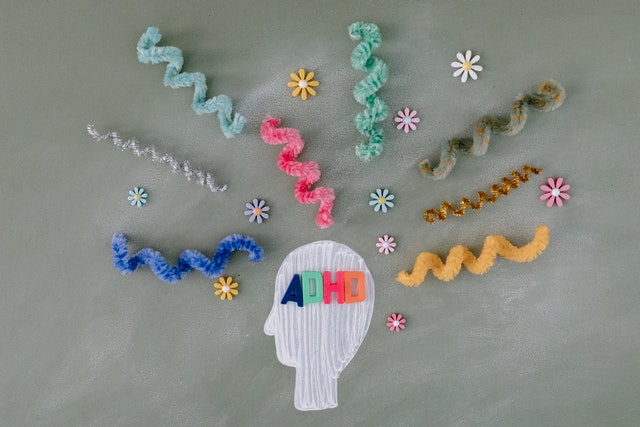
“Treatment For ADHD is Essential.”
I said this recently to a father I work with, “Dan”. He is a long term client, and a loving, hard working family man. About three months ago, his teen age son was diagnosed as having ADHD. Consequently, that news terrified him and worry has gripped him ever since.
Dan worries that his son won’t be okay. He feels guilty that he did not have his son evaluated sooner. And as a devoted dad, he poured over books and articles attempting to get himself up to speed and all things ADHD. But the more he read, the more overwhelmed he got. The resources he turned to left him scared and confused.
Dan has reason to be concerned. Research suggests that up to 60 percent of children who are diagnosed with ADHD will continue to meet the criteria for diagnosis into adulthood. The typical onset of symptoms is between 4-6 years old and ADHD kids are at greater risk for a host of ills. These include:
- High rates of anxiety and depression
- Risk of being under-educated relative to their intellectual ability
- Higher rates of relationship conflict
Given these facts, treatment for ADHD is of primary importance. Most research indicates that while the level of symptom severity can improve, those who are diagnosed with ADHD typically do not catch up with their peer group. Most seem to lag behind. But improvement in symptoms is very possible and can help you to narrow the gap between your ADHD symptoms and your goals.
There is An Important Place For Hope… and Good Planning.
Treatment for ADHD can help you reach your potential. I’ve worked with many patients who have ADHD. They have all had their personal challenges to work around and overcome, however they were all very successful in their lives.
Treatment For ADHD – 5 Big Categories
Category #1
Behavioral Interventions– As a treatment for ADHD, one of the first things to consider are developing behavioral interventions that will support you in functioning as best as possible. These can be simple, but life- saving (or career and relationship saving) tools like:
- Making and Keeping To-Do Lists
- Using Your Calendar Religiously
- Using Alarms on Your Smart Phone
- Implementing Strategies to De-Clutter your home
- Limiting distractions like T.V, Computer, Music, Phone, Etc.
- Behavioral plans- While essential for children with ADHD, when implemented well, I have also seen plans work well with even college students.
Category #2
Skills Building Therapies
There are several types of psychotherapy that are widely available. Some modalities emphasize learning skills like:
- Emotional Regulation Skills
- Communication Skills
- Social and Relationship Skills
- Parenting education- this type of skill building is essential if you have an ADHD kid.
Category #3
Accommodations
Remember if you have been diagnosed with ADHD, you probably are eligible for accommodations at school and in the workplace. Many of my clients have benefited enormously from these. They have shared with me how being allowed more time to take a standardized test at school, or being able to work in an office with fewer distractions has been essential to their academic or work success. Recently, one of my adult ADHD clients shared with me that his company actually secured a coach to assist him and consult with him about areas of his job that were tough for him. While accommodations are not really an ADHD treatment, they can be vital to your success.
Next, An Often Overlooked Treatment For ADHD:
Category #4
Neurofeedback Training-
This form of treatment for ADHD has been gaining in popularity as patient become wary of the dangers of ADHD drug treatments. The American Academy of Pediatrics cites neurofeedback therapy as a “Level 1 Efficacy -Best support treatment for ADHD”. Research studies show that symptom reduction does not drop off when training ceases the way it does with stimulant drugs and does not have the same negative side effects or risks.
ADHD is a brain problem. Neurofeedback trains the brain. In my practice, I’ve seen neurofeedback change lives. Many ADHD clients found that it provided with important symptom reduction.
Category #5
Psychiatric Drugs – Research indicates that most of the symptom reduction gains made though taking ADHD drugs are temporary. And those gains may not come free of cost. For example, Leonard Sax Ph.D, M.D. wrote in the New York Times, that “there is substantial evidence that these drugs damage the nucleus accumbens”. This area of our brain plays a vital role in motivation. Imagine living your life with low or no motivation.
Additionally, the journal Neuropsychopharmacology recently sounded an alarm bell when they published a study of 32,000 people. All of the subjects had ADHD diagnosis. Importantly, the findings showed that those patients who received stimulant drug treatment later developed movement disorders like Parkinson’s disease at a higher rate. The rates of disease were 8.6 times higher than those who did not take stimulant drugs.
ADHD Treatment- Help Is Available
Here’s the takeaway: if you are looking for treatment for ADHD, there are options. Click here if you would like to learn how I can help with ADHD Treatment,




